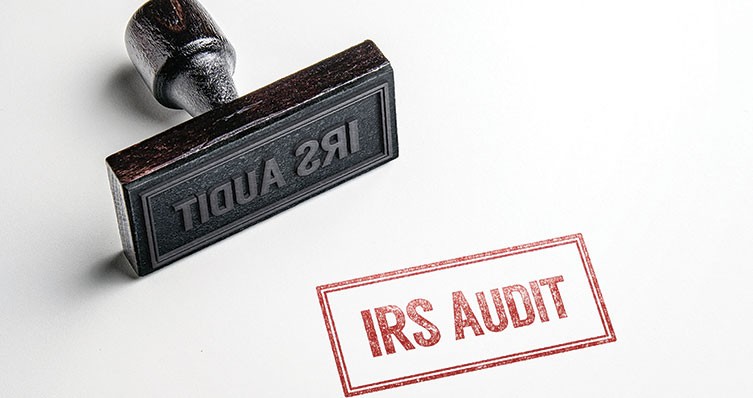
If you filed your 2016 income tax return (rather than filing for an extension), you may now wonder whether your business could face an IRS audit. Every business owner should understand what the IRS audit process may entail, and how it could impact the business. Here are a few basic considerations to take into account so that you’re prepared in case of an audit.
Catching the IRS’s eye
Many business audits occur randomly, but a variety of tax-return-related items are likely to raise red flags with the IRS and may lead to an audit. Here are a few examples:
- significant inconsistencies between previous years’ filings and your most current filing
- gross profit margin or expenses markedly different from those of other businesses in your industry
- miscalculated or unusually high deductions (The IRS would likely notice disproportionally large charitable deductions compared to your income.)
- large discrepancies in payroll tax vs. income tax reporting
An owner-employee salary that’s inordinately higher or lower than those in similar companies in his or her location can also catch the IRS’s eye, especially if the business is structured as a corporation.
Response measures
If you’re selected for an audit, you’ll be notified by letter. Generally, the IRS won’t make initial contact by phone. But if there’s no response to the letter, the agency may follow up with a call.
Many audits are merely correspondence audits, which are low-level and typically straightforward. The IRS simply requests that you mail in documentation to support certain deductions you’ve taken. Others may ask you to take receipts and other documents to a local IRS office.
Some good news: In no instance will the agency demand an immediate response. You’ll be informed of the discrepancies in question and given time to prepare. To do so, you’ll need to collect and organize all relevant income and expense records. Be prepared to explain any missing documentation that is requested by the IRS.
Only the most intrusive version, the field audit, requires meeting with one or more IRS auditors.
When it comes to dealing with a field audit, taxpayers may choose to go it alone. But it’s wiser to enlist professional representation in the form of a CPA who is qualified to represent taxpayers before the IRS.
Why involve a professional? A field audit could prove quite disruptive to your business. Depending on the level of interest from the IRS and what they find, it could take a few days, or drag on for months. If the latter is the case, the audit could be quite costly and demanding on your internal accounting team.
One major benefit of CPA representation is that the process will be more streamlined, predictable and formal. The CPA will communicate with the IRS auditor about the specific reasons the business is being audited. Then, the field audit can be conducted at the CPA’s office. If you represent yourself, the audit takes place at your place of business, which could lead to some unintended consequences. You might divulge more information than necessary, or the agent might see or hear something that raises additional questions (resulting in a lengthier investigation). Your CPA’s office is a more controlled environment, and an off-site location minimizes impromptu questioning.
If the IRS selects you for an audit, KraftCPAs can help you:
- understand what the IRS is disputing (It’s not always crystal clear.)
- gather the specific documents and information needed (not to mention clarify which materials are not needed)
- respond to the auditor’s inquiries in the most expedient and effective manner
Don’t allow an IRS audit to ruin your year and drain business resources. By taking a meticulous, proactive approach to how you track, document and file your company’s tax-related information, you’ll make an audit much less painful and even decrease the chances that one happens in the first place.
But if the letter does come one day, you should strongly consider getting professional representation to make the process more streamlined and less disruptive to your business. Our tax specialists at KraftCPAs possess significant experience handling IRS field audits for a variety of different businesses. We’d gladly guide you through the audit process, making it as painless as possible.
KraftCPAs can help.
Call us at 615-242-7351 or complete the form below to connect with an advisor.